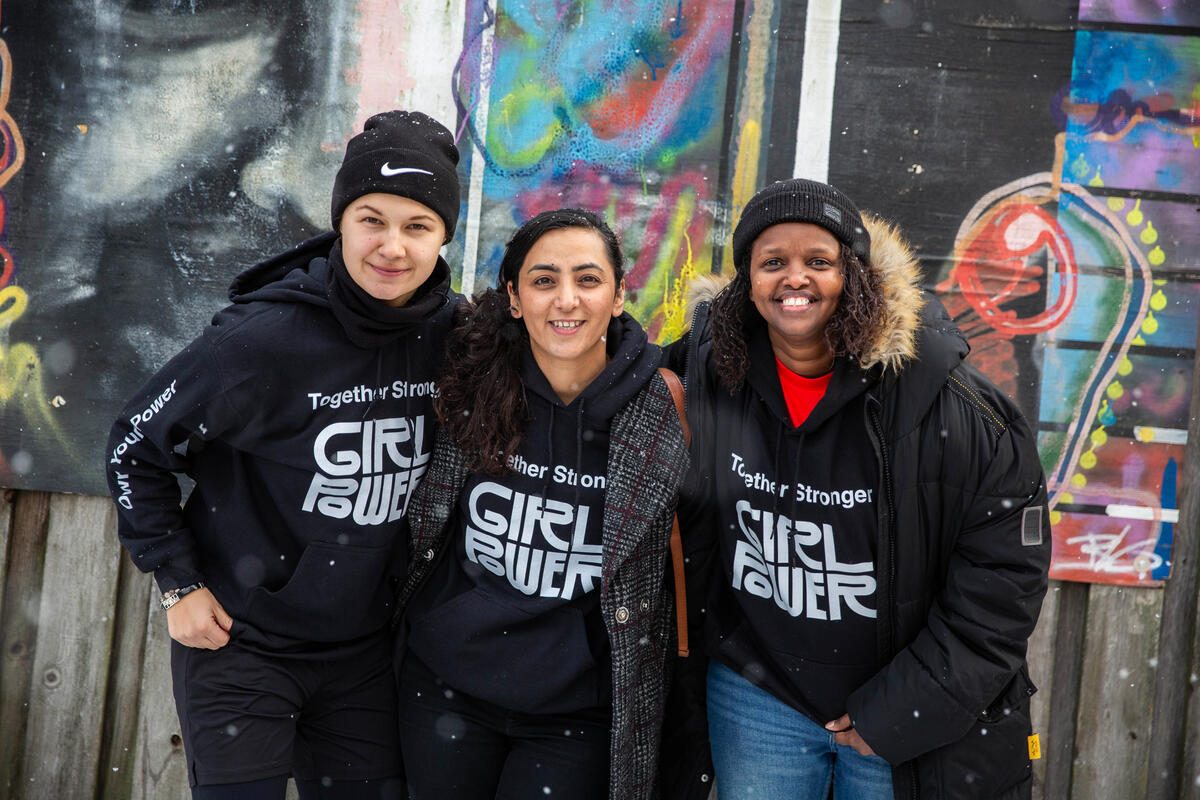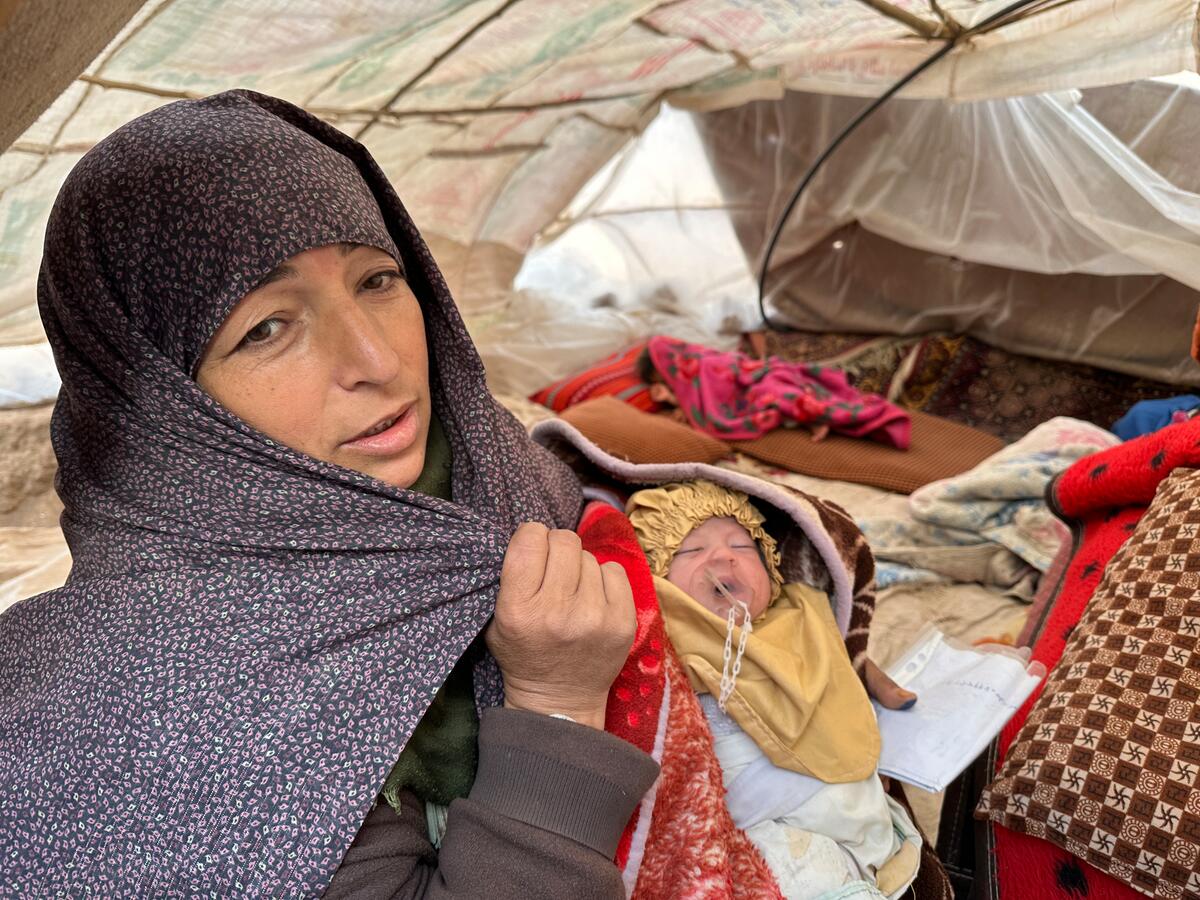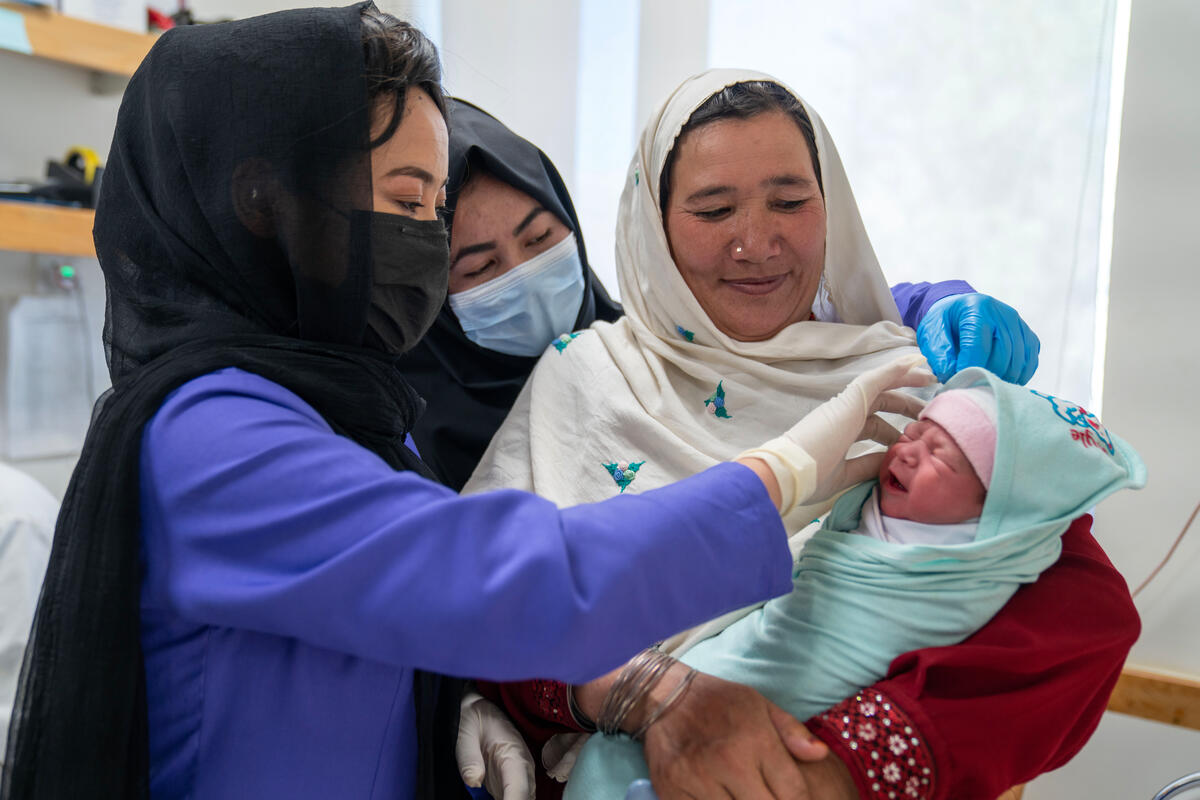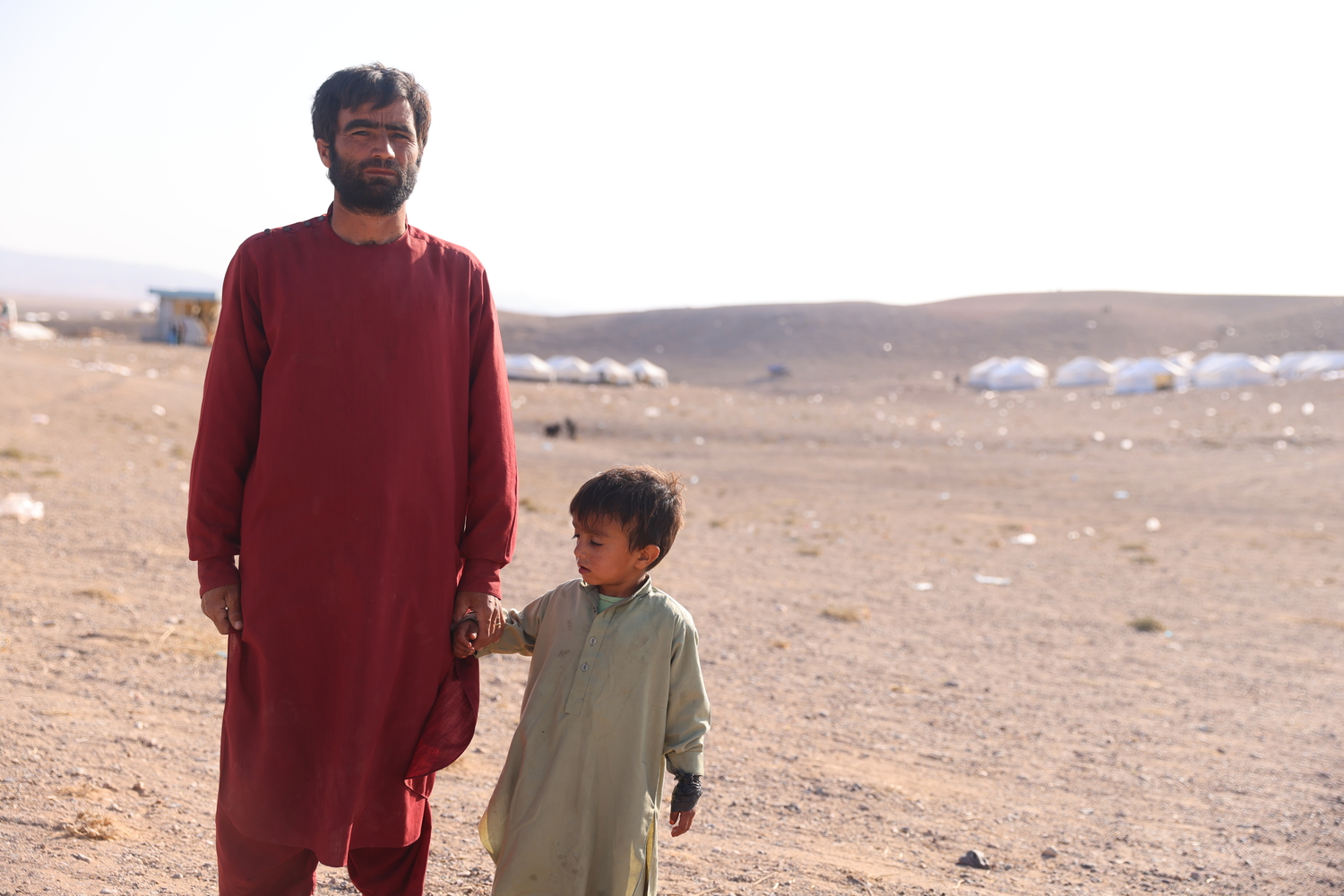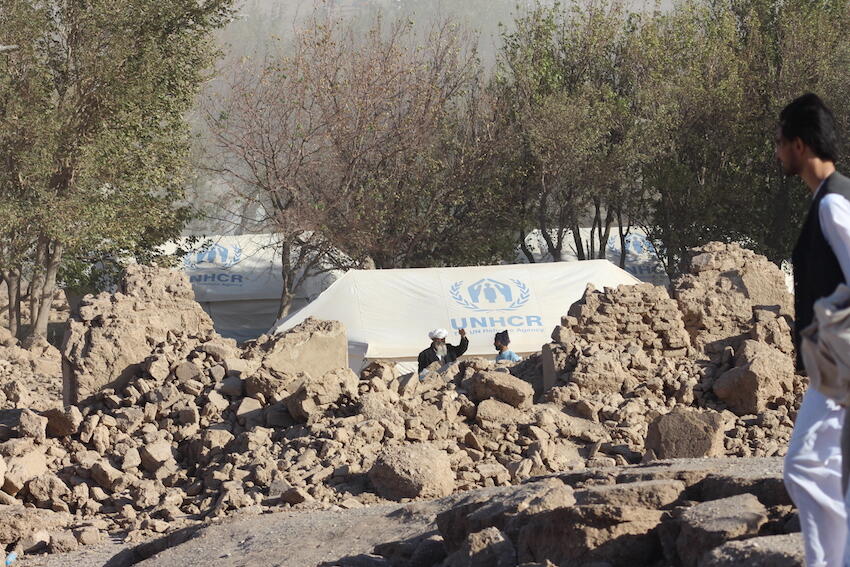Refugees bring world-class cricket to Afghanistan
Refugees bring world-class cricket to Afghanistan

KABUL, Afghanistan, 16 July (UNHCR) - Against a backdrop of the mountains surrounding Kabul, tall young men gather in a circle at the cricket stadium to hear tips from their batting coach after another training session on a hot summer day.
Seven among the team of young, enthusiastic players, including captain Mohammad Nabi Eisakhel, 29, are former refugees from Pakistan. "We brought cricket back with us to Afghanistan," he says.
Like many in the team, he learnt his cricket in Pakistan. "I used to hide from my parents and play cricket in school," he says. "There was no future then in cricket, now we are a proper country with a real team."
With Nabi as captain, Afghanistan qualified for the 2015 World Cup in October 2013, beating Kenya - a huge achievement for a country so new to the sport.
Nabi's family - cousins, uncles, parents, brothers and sisters--- left Afghanistan during the Soviet occupation in the 1980s. Relatively well off, they lived in rented homes and started businesses in Pakistan. Nabi was born in Peshawar and went to school there, sneaking away to play cricket whenever he could. He played in the refugee camps of Peshawar and later, club-level cricket.
Like millions of refugees who saw hope when the civil war ended in 2001, Nabi's family returned to Jalalabad a year later. He was 17-years-old and won a place on an Afghan team to tour Pakistan. He's never looked back and took over as captain of the national team last year.
Confident and determined, Nabi, an all rounder, has the most international experience in the team. In 2013, he was picked for the Sylhet Royals in the Bangladesh Premier League. As a young cricketer, he played for the Marylebone Cricket Club (MCC) team in 2006-2007. He dreams of playing in the Indian Premier League.
"It felt strange when I first came back," he says. "The war had spared nothing -everything was broken. But now, buildings have been rebuilt, roads repaired, markets re-opened. We have cricket grounds and proper academies; earlier we had nothing."
Samiullah Shinwari, with his light eyes and serious manner, is another star of the national team. A 27-year-old all-rounder, he prefers bowling off-spin. The son of an imam, he was born in Jalalabad but the family fled in the 1990s during the Taliban years.
"I was very small then. My mother said that we crossed on donkeys and walked on foot in the mountains," he says. He grew up in Peshawar and played cricket as early as the fourth grade.
"When I was little, I used to watch these (India-Pakistan) matches on TV. And I had a dream, that someday Afghanistan will also have a cricket team," he says. Samiullah, who first played for the Afghan national team in 2006, is proud to be part of something he once dreamt about.
Both Nabi and Samiullah are examples of how refugees have infused life into a sport that is now immensely popular in Afghanistan. Cutting across ethnic lines, cricket and other sports bring all Afghans together, celebrating a victory or lamenting a loss.
The earliest record of cricket in Afghanistan is of British troops playing in Kabul in 1839, though it appears they left no legacy. The Afghanistan Cricket Board was formed in 1995, became an affiliate member of the International Cricket Council in 2001 and has been an associate member since June 2013. It became a member of the Asian Cricket Council in 2003.
Refugees once, Nabi and Samiullah have helped make Afghanistan's cricket team -- coached by four former international players from Pakistan, England, Australia and South Africa -- ready to play at the highest level.
"We are busy," says Nabi, listing tours of Zimbabwe, the West Indies and then the World Cup in Australia -New Zealand in early 2015. While they hope to do well in the World Cup, their dream is to beat Pakistan, the country that nurtured them into cricketers.
They came tantalizingly close in the first Twenty20 International between the two countries at Sharjah in December 2013, where Pakistan won off the last ball. "We haven't done this yet, but we hope to," says Samiullah. "Our country and our people will be so happy!"

